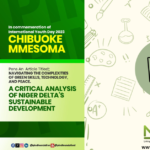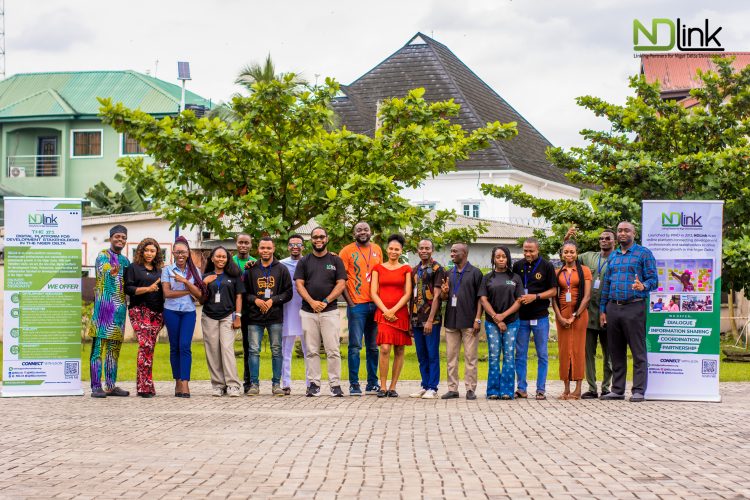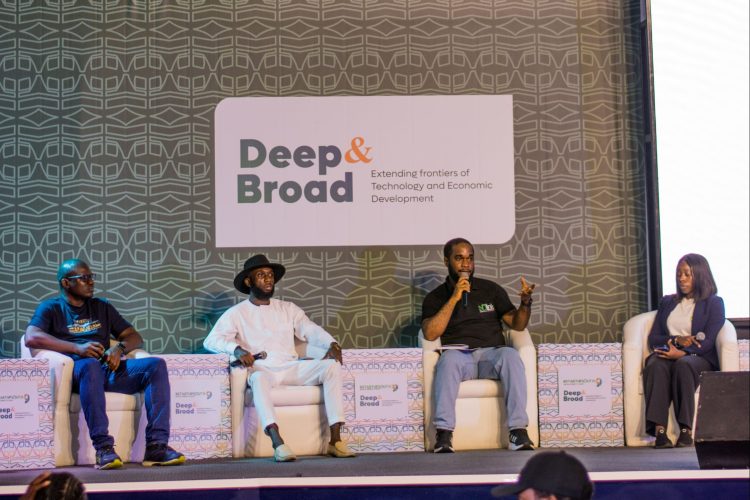
Niger Delta Weekly Conflict Update: November 19-25, 2023
November 24, 2023
Navigating the Complexities of Green Skills, Technology, and Peace: A Critical Analysis of Niger Delta’s Sustainable Development
November 28, 2023Samuel Chime
According to the United States Agency for International Development (USAID), Nigeria has the potential to generate over 12,000 Megawatts (MW) of electric power from existing plants. Still, it can only dispatch around 4,000 MW, insufficient for over 200 million of its population.
Meanwhile, the shift towards clean energy has become necessary as a country in the world’s most energy-poor continent.
Fossil fuel emissions have set the planet on a dangerous trajectory, compelling the world to adopt sustainable alternatives. Yet, amidst this global transition, the African continent remains plagued by energy poverty, with an increasingly young population at its heart.
For Africa to embrace an energy-abundant future, its youth must be equipped with the skills to navigate the green economy. Nowhere is this challenge more evident than in Nigeria’s Niger Delta region, where most communities are facing energy deprivation and social conflicts spurred by this deprivation.
Sustainable Future for the Niger Delta through Electricity Access
The Niger Delta, known for its significant oil reserve, faces energy poverty that has perpetuated cycles of poverty and conflict, with a large fraction of its community lacking access to the national grid, which deepens social disparities and gives rise to tensions.
According to the World Bank 2022 Energy Progress Report, Nigeria has the highest energy access deficit in the world, with about 92 million Nigerians lacking access to grid power, accounting for about 45% of the population, including the Niger Delta.
On the mission to build peace, resolve conflicts, and power several communities in the Niger Delta, the Foundation for Partnership Initiatives in the Niger Delta (PIND) serving as a beacon of hope in this region through its innovative Access-to-Energy (A2E) program is actively transforming lives by connecting communities to electricity and simultaneously equipping the youth with valuable green skills. At the core of this initiative lies the power of solar energy, a clean and abundant power source poised to disrupt the energy poverty paradigm in this region.
This A2E program is a lifeline to countless Niger Delta communities that have long been denied the benefits of electricity. One such community is Adagbarasa in Delta State, where the impact of PIND’s intervention is palpable. With solar panels adorning rooftops and illuminating once-darkened streets, children can now study after sunset, clinics can provide essential healthcare services, and local businesses have gained a new lease on life.
Empowering the Youth with Green Skills
Beyond electricity access, PIND recognizes the transformative potential of education. By offering green skills training to the youth, PIND is fostering a workforce equipped to drive the green economy forward, facilitating the training of young people in solar installation, maintenance, and sustainable energy management. These skills empower them to access new job opportunities and contribute to the sustainability of their communities and regions.
This empowerment is evident through the Youth Empowerment Pathway (YEP) project, where several youths in the Niger Delta are trained and empowered with soft skills, enhancing their values, employability, and development.
Evidence from Stakeholders and Communities
Energy experts and beneficiaries in several communities highlighted the importance of mini-grid systems and the positive impact of PIND’s A2E projects in the Niger Delta.
For example, in Adagbarasa community, Delta State, life has taken an exciting turn. At 7 p.m., the streets, which usually become darkened once night falls, are now illuminated. Children play in their parents’ compounds while some study under a light bulb. Businesses are still active, as is evident at the local bar, which is bubbly with men relaxing, chatting, and laughing. For years, the community struggled with a lack of electricity and insecurity.
Felix Soroh, a resident, said the community only had access to electricity once a solar energy connection was introduced through PIND’s A2E project.
“We have never had light in our community,” Soroh said. “There was no NEPA connection, so we usually used generators before the solar light came. This solar energy is very good for us. It has reduced the level of theft because even the thieves who usually come to the community when night falls cannot do so again”.
Anthony Fiyegha from Kpokugbene (Warri North) testified to the effectiveness of the PIND A2E project in his community. “This project has not only empowered many youths in our community with technical skills but has also reduced crime and improved our standard of living,” he said.
In an interview, Anthony Osibajo, the A2E coordinator, stated, “PIND’s A2E project promotes economic growth, peacebuilding, and security. Through this project, many lives in last-mile communities have been changed.
“In some communities where poor network connectivity hindered internet access and communication, the PIND’s intervention has bridged the gap by providing electricity and sustainable energy skills, resulting in improved communication, innovation, increased market sales, and internet connectivity.
“In Ogeheye (Delta State) and Sangana community (Bayelsa State), where a lot of fishing activities take place, the energy cabin and solar refrigeration system, which are part of PIND’s A2E intervention plan, have spurred increased market activities, economic growth and improved security. Fishers now properly preserve their fish rather than smoke them, people move freely at night with no insecurity threats, and shop owners now have cold drinks, offering them a high market turnout.”
Joseph Ojo, a senior manager at A4&T Power Solution in Ondo, said, “The Access to Energy project has not only supported businesses by increasing their disposable income but has also improved the social lifestyle of the people, reduced cost of living, and made communication easier. Through the adoption of the mini-grid, there has been a drastic reduction in noise and air pollution as people no longer depend on generator sets as the only alternative power source”.
BeIngCost Integrated Solutions director Engr. Muideen Oladapo also highlighted how their mini-grid power solutions empowered communities like Ogbigbirin, Kpokogbe, and Gbokoda, with over 400 subscribers in these communities.
He said, “Electricity access is crucial for a sustainable future as it enables a shift to clean energy, improves living conditions, boosts economic development, enhances health and education, and reduces pollution and crimes. It supports rural growth, clean cooking, improved social lives, and infrastructural development.”
Reducing Conflict, Cultivating Cohesiveness
PIND’s approach is not just about energy—it’s about fostering harmony and unity. With access to electricity, communities experience enhanced communication, improved security, and increased economic potential. As darkness recedes, the light of cooperation replaces the shadows of crimes and conflicts. Empowered youth, armed with green skills, have become ambassadors of change, redefining the trajectory of their communities.
Shaping a Brighter Tomorrow: The Way Forward
The Foundation’s work in the Niger Delta is a testament to the transformative power of sustainable energy solutions. By lighting up communities with solar energy and nurturing green skills among the youth, PIND is paving the way for a brighter, more inclusive future. As the world grapples with the challenges of climate change and energy transition, initiatives like A2E serve as beacons of hope, proving that innovation and compassion can change lives.
To read more about PIND Foundation’s Access to Energy interventions, visit this link: https://pindfoundation.org/project/access-to-energy









